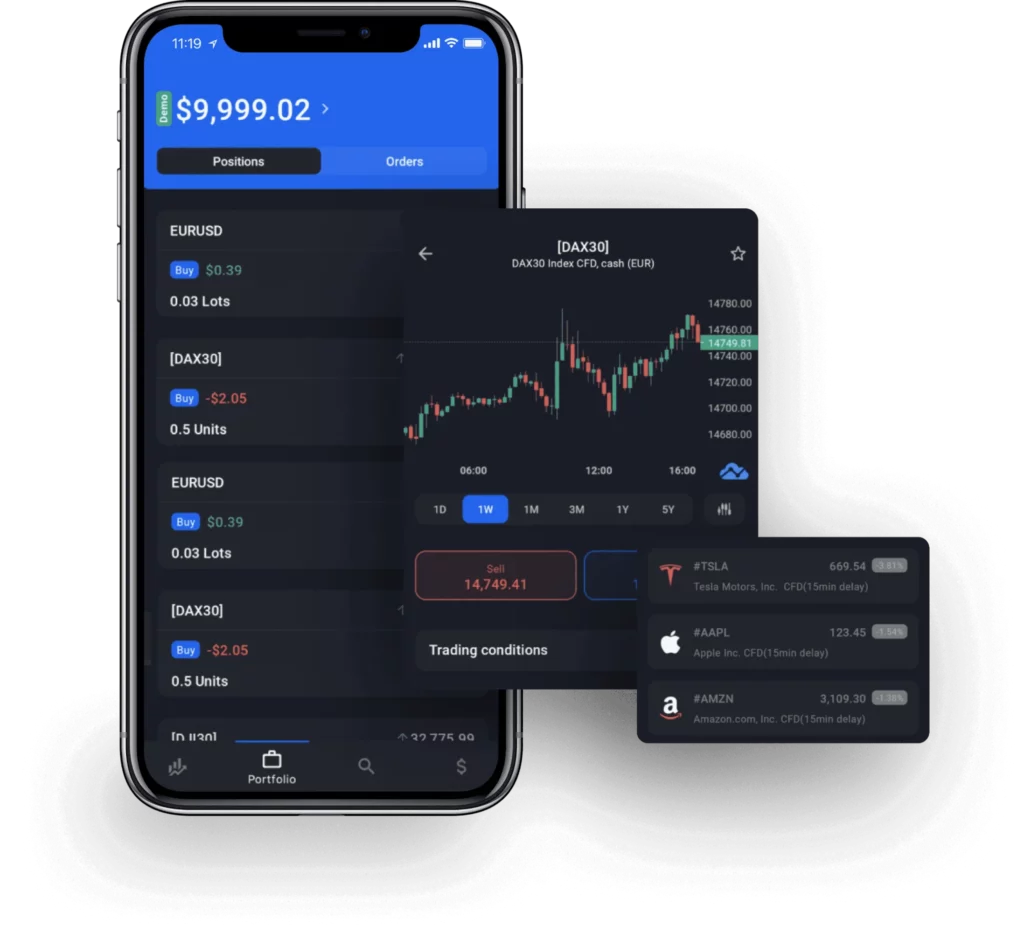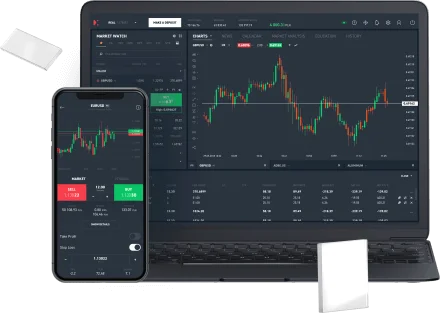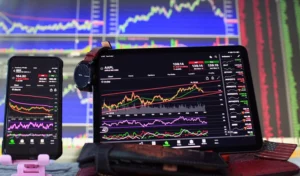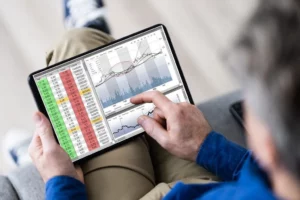Foreign exchange trading in Indonesia has grown rapidly in the last decade, drawing the attention of both institutional and retail traders. However, not every broker offering access to the forex market is operating under local law. To trade safely and avoid fraudulent operations, traders must understand which platforms are legally approved and how Indonesian regulation shapes the market.
Overview of Forex Trading Regulations in Indonesia
Forex trading in Indonesia is monitored by Badan Pengawas Perdagangan Berjangka Komoditi (BAPPEBTI), a division of the Ministry of Trade. Its main responsibility is to oversee the futures and derivatives markets, including foreign exchange activities. Any broker that offers forex trading to Indonesian residents must be registered and approved by this agency.
BAPPEBTI establishes operational requirements that include capital adequacy, transparent reporting, segregated client funds, and clear disclosure of trading risks. It also sets guidelines for advertising and customer protection to minimize misleading information in the market.
Foreign brokers may operate only through local partnerships or subsidiaries that hold BAPPEBTI approval. Unregistered offshore platforms are technically illegal for Indonesian residents, even if they advertise services in Bahasa Indonesia or accept local currency payments.
Key Points of Indonesian Forex Regulation:
- Supervisory Authority: BAPPEBTI under the Ministry of Trade.
- Supporting Institutions: Bank Indonesia and the Indonesia Futures Exchange (BBJ).
- Primary Goal: Protection of retail investors and market transparency.
- Legal Requirement: Brokers must maintain segregated client accounts and follow periodic reporting standards.
- Penalties: Operating without a BAPPEBTI license can lead to blocking of the broker’s website and financial penalties.
These rules are designed to ensure that trading activities occur within a legal and controlled framework, reducing the risks associated with unregulated online brokers.

How to Identify a Legal Forex Broker in Indonesia
Choosing a regulated broker is the foundation of safe trading. Many offshore websites claim to accept Indonesian traders, but most operate without any local authorization. Before opening an account, traders should verify that the company is included in the official BAPPEBTI registry and complies with transparency standards in pricing, commissions, and trading execution.
Valid Licensing and Official Registration
A legitimate broker in Indonesia must:
- Possess a BAPPEBTI license number, visible on its website and verifiable via the regulator’s database.
- Be a registered member of Indonesia Commodity and Derivatives Exchange (ICDX) or Jakarta Futures Exchange (JFX).
- Maintain client fund segregation in Indonesian bank accounts.
- Follow annual audit and financial disclosure requirements.
Transparency of Fees and Trading Conditions
Transparent cost structures are another key sign of legitimacy. A licensed broker clearly displays all commissions, spreads, and swap rates, allowing clients to calculate trading costs before placing orders.
Below is an example of what regulated platforms commonly disclose:
| Fee Type | Description | Transparency Standard |
| Spread | Difference between bid and ask | Published in real time |
| Commission | Charged per trade or lot | Fixed and stated in account terms |
| Swap | Overnight financing rate | Displayed before trade confirmation |
| Withdrawal | Bank or payment processor fee | Clearly stated in policy |
A lack of transparent fee information often indicates a non-regulated operation. Legal brokers must also disclose margin requirements, order execution methods, and slippage handling to comply with BAPPEBTI standards.
List of Licensed Forex Trading Platforms in Indonesia (2026)
In 2026, several forex trading companies operate legally under BAPPEBTI supervision. These brokers meet capital, security, and transparency requirements defined by Indonesian authorities. Their operations are regularly reviewed, and their licenses can be verified through the BAPPEBTI public database.
Below is a table listing several licensed forex trading platforms that comply with Indonesian law:
| Broker Name | License Number | Exchange Affiliation | Head Office Location |
| PT Monex Investindo Futures | 178/BAPPEBTI/SI/I/2003 | Jakarta Futures Exchange (JFX) | Jakarta |
| PT Asia Trade Point Futures | 873/BAPPEBTI/SI/11/2005 | Indonesia Commodity & Derivatives Exchange (ICDX) | Jakarta |
| PT Finex Berjangka | 47/BAPPEBTI/SI/04/2013 | ICDX | Jakarta |
| PT Trijaya Pratama Futures | 362/BAPPEBTI/SI/05/2004 | JFX | Surabaya |
| PT Global Kapital Investama (GKInvest) | 824/BAPPEBTI/SI/11/2005 | ICDX | Jakarta |
Each company on this list provides full legal documentation, clear contact information, and operates through verified local bank accounts. The BAPPEBTI license ensures that these brokers separate client deposits from company operational funds and follow standardized complaint procedures.
Verification tip: To confirm a broker’s legitimacy, visit the official BAPPEBTI website, search the broker’s name, and ensure the license is listed as active.
Comparison of Legal and Unregulated Forex Platforms
The distinction between legal and unregulated forex platforms is critical. While regulated brokers must meet strict capital and reporting standards, unregulated ones often operate offshore, offering high leverage and questionable withdrawal processes. Understanding these differences helps traders avoid losses due to fraud or non-compliance.
| Aspect | Legal Brokers (BAPPEBTI Licensed) | Unregulated Brokers (Offshore) |
| License Verification | Publicly listed by BAPPEBTI | Usually unverifiable |
| Fund Safety | Segregated in Indonesian banks | Often mixed with company funds |
| Leverage | Capped according to BAPPEBTI rules | Extremely high, often exceeding 1:1000 |
| Dispute Resolution | Regulated complaint process | No local protection |
| Transparency | Fees and conditions published | Opaque or misleading pricing |
| Tax Compliance | Subject to Indonesian law | Avoids local reporting |
Main Risks of Unregulated Brokers:
- Unprotected deposits – client funds are not separated from operational accounts.
- No legal recourse – traders cannot file official complaints in Indonesia.
- Potential account freezing – offshore authorities rarely enforce client protection.
- Unrealistic promotions – many unlicensed brokers use bonuses or “risk-free” offers to attract deposits.
- Website blocking – BAPPEBTI actively reports illegal domains to the Ministry of Communication for blacklisting.
Trading with unregulated brokers might offer high leverage or easy sign-up but exposes traders to severe risks, including capital loss without any chance of recovery. Using licensed brokers ensures that each transaction falls under Indonesian jurisdiction.

Account Types and Trading Options on Legal Platforms
Legal brokers in Indonesia offer several account types designed to meet different trading preferences. While features vary, most licensed companies follow standardized structures that include Standard, Islamic (Swap-Free), and ECN accounts. Traders can also choose between local currency accounts (IDR) or international base currencies such as USD and EUR.
Standard, Islamic, and ECN Accounts Explained:
- Standard Account – typically used by beginners, featuring fixed or floating spreads and no commission. It provides access to the full range of forex pairs, metals, and indices.
- Islamic (Swap-Free) Account – structured for traders following Sharia principles, without overnight interest (swap). Brokers replace swap with a fixed administrative fee or no rollover cost.
- ECN Account – offers direct access to the interbank market, narrow spreads, and a transparent commission model. Suitable for advanced traders using algorithmic or high-frequency strategies.
Supported Currency Pairs and Trading Instruments
Licensed forex brokers in Indonesia usually offer major, minor, and cross pairs, along with commodities, indices, and metals. The availability of instruments depends on exchange permissions and liquidity providers.
Commonly Supported Assets:
- Major Pairs: EUR/USD, GBP/USD, USD/JPY, AUD/USD
- Minor Pairs: EUR/JPY, GBP/JPY, NZD/USD
- Commodities: Gold (XAU/USD), Silver (XAG/USD), Crude Oil
- Indices: Nikkei 225, S&P 500, FTSE 100
- Cryptocurrency CFDs (if permitted): Offered only by globally regulated subsidiaries, subject to BAPPEBTI restrictions.
Most legal brokers integrate trading via MetaTrader 4 or MetaTrader 5, ensuring stable order execution and access to real-time market data.
Safety Measures for Indonesian Forex Traders
Even when working with a licensed broker, traders should take independent steps to maintain the security of their accounts and funds. BAPPEBTI oversight helps protect client interests, but daily trading involves practical risks such as phishing, unauthorized access, and data misuse. Understanding how to verify a broker’s legitimacy and protect personal information is essential.
Checking Broker Legitimacy Before Registration
Before depositing funds, every trader should perform a background check using publicly available data. A legitimate broker leaves a clear paper trail — verifiable licensing, transparent contact details, and consistent regulatory documentation.
Checklist for verifying broker legitimacy:
- Confirm BAPPEBTI license number using the regulator’s online database.
- Review company address and bank information — these should match official records.
- Check exchange affiliation (ICDX or JFX membership).
- Test withdrawal procedures with a small deposit before committing larger sums.
- Read client reviews on local trading forums or regulatory announcements.
Avoid brokers that:
- Redirect users to offshore subsidiaries for account creation.
- Request deposits through personal bank accounts or untraceable wallets.
- Offer unrealistic returns or “guaranteed” profits.
BAPPEBTI routinely publishes a blacklist of websites operating without authorization. Traders should verify that their broker’s domain does not appear in these announcements.
Protecting Personal and Financial Information
Security practices extend beyond licensing. Each trader is responsible for maintaining a safe trading environment and preventing unauthorized access.
Recommended security measures:
- Use two-factor authentication (2FA) on all trading and email accounts.
- Store login credentials offline, preferably in an encrypted password manager.
- Avoid trading through public Wi-Fi connections.
- Monitor account activity and withdrawal history regularly.
- Enable notifications for every login attempt or fund movement.
Licensed brokers also comply with Indonesian data protection laws and KYC/AML procedures, which help prevent identity theft and financial fraud. However, traders should never share account details with third parties or signal providers without formal contracts.
Taxation and Legal Obligations for Forex Traders in Indonesia
Forex trading income in Indonesia is categorized as capital gains or business income, depending on trading frequency and account ownership structure. Both are subject to taxation under Indonesian law, and traders are required to report profits through annual tax declarations to the Directorate General of Taxes (DJP).
Tax Treatment Overview
| Category | Description | Applicable Tax Rate |
| Retail Trader (Individual) | Income derived from personal forex trading | 5–30% progressive rate |
| Corporate Trader | Registered business entity trading forex | 22% corporate rate |
| Withholding Tax | Applies to local broker transactions | 0.1–0.3% per trade |
| VAT | Not applied to foreign exchange transactions | Exempt under trade law |
Taxes are calculated on net profit after deducting losses and commissions. Licensed brokers usually issue periodic statements that can be used for tax reporting. Unregulated offshore brokers, however, do not report to Indonesian authorities, which may lead to complications during audits.
Reporting Responsibilities:
- Keep monthly trading statements and withdrawal confirmations as evidence of transactions.
- File tax returns annually using e-filing under the DJP system.
- Pay taxes in Indonesian Rupiah (IDR) based on the exchange rate at the time of profit realization.
- Consult a registered tax advisor for accurate assessment if trading is frequent or part of a business entity.
Failing to report forex income may result in penalties or audits by the Directorate General of Taxes. Legal brokers simplify compliance by offering downloadable transaction histories and profit reports compatible with the DJP filing system.
Frequently Asked Questions
Is forex trading legal in Indonesia?
Yes. Forex trading is legal when conducted through brokers licensed by BAPPEBTI and registered with local exchanges such as JFX or ICDX.


